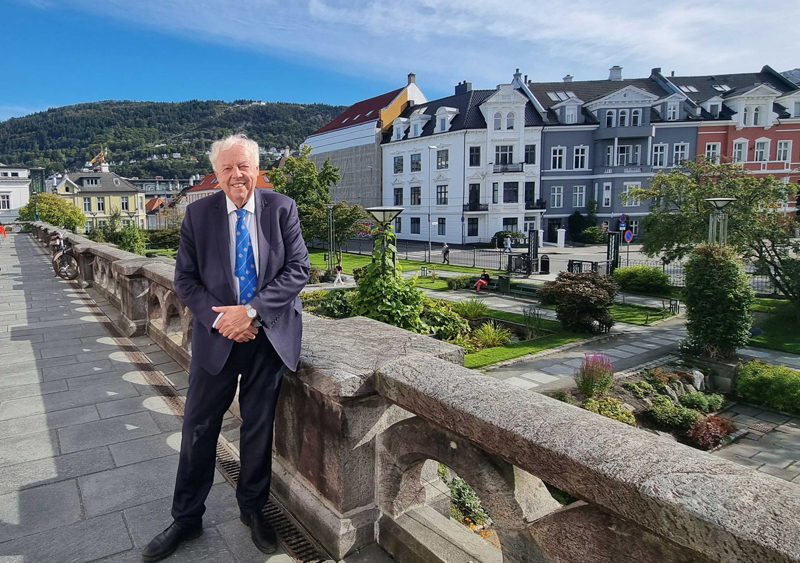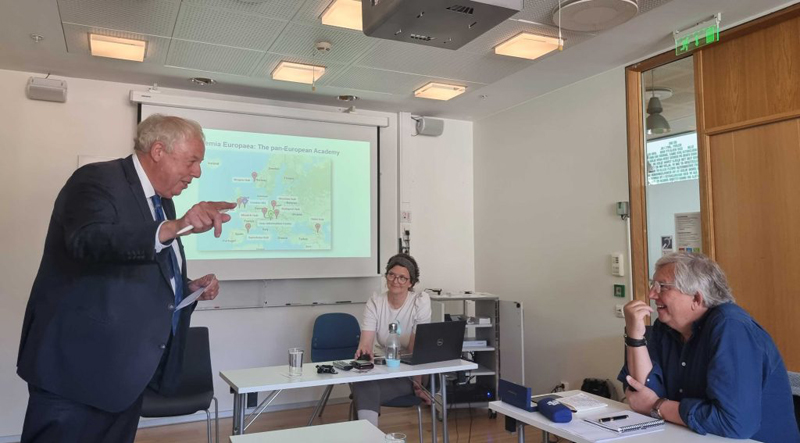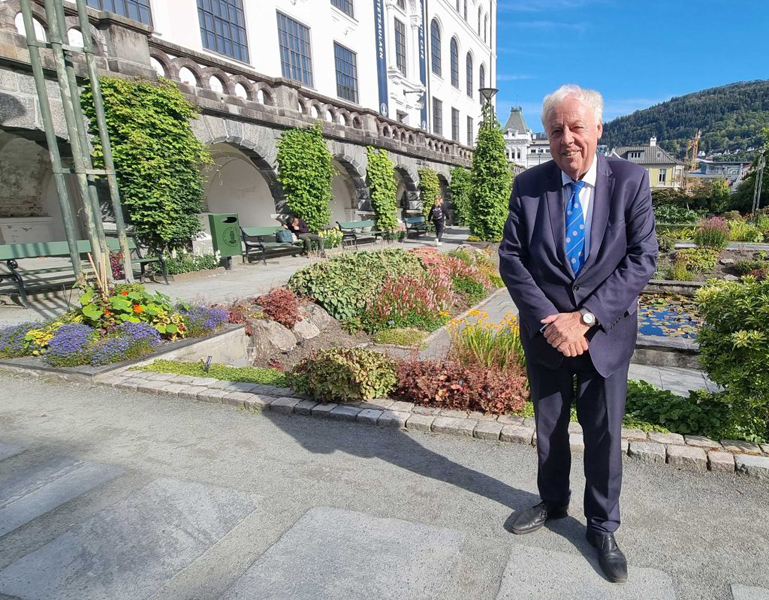The founders of Academia Europaea had great vision in seeing the importance of independence#
The AE-Bergen Knowledge Hub had the pleasure of hosting the former president of Academia Europaea, Sierd Cloetingh, on his visit to the University of Bergen, September 4th-6th. On this occasion, he gave an interview about his long relationship with Norway and the scientific community in Norway, his work in Earth Science, the importance of science advice for policy, and the work of Academia Europaea.
had the pleasure of hosting the former president of Academia Europaea, Sierd Cloetingh, on his visit to the University of Bergen, September 4th-6th. On this occasion, he gave an interview about his long relationship with Norway and the scientific community in Norway, his work in Earth Science, the importance of science advice for policy, and the work of Academia Europaea.
The interview#
Earlier in your career, your work in Earth Science has taken you to Norway on many occasions?
Yes, the topography and geology of Norway is of great interest to Earth Scientists. The Norwegian Atlantic margin is one of the best studied in world. I had the pleasure of having a close personal interaction with researchers from both industry and academia, such as Olav Eldholm MAE, Roy Helge Gabrielsen MAE, Bjørn Larsen and Bjørn Rasmussen, as well as AE-Bergen Hub Director Eystein Jansen, who is still very much present in the international scene.
These people are examples of the presence of a strong research community in this field. Norway is fairly unique as a natural laboratory for studying the role of the interaction of deep Earth and surface processes in continental break-up and subsequent evolution of rifted continental margins and Earth topography. In addition, it has been a very good example of cooperation between the academic field and the energy industry sector, which my PhD students, now with distinguished careers, have continued.
These people are examples of the presence of a strong research community in this field. Norway is fairly unique as a natural laboratory for studying the role of the interaction of deep Earth and surface processes in continental break-up and subsequent evolution of rifted continental margins and Earth topography. In addition, it has been a very good example of cooperation between the academic field and the energy industry sector, which my PhD students, now with distinguished careers, have continued.
Of the close to 80 PhD candidates you have supervised, 10 have been engaged in the research cooperation with Norway. What are your impressions of developments in your field in Norway?
It’s been very interesting to learn more about the recent work of the group that my former student Ritske S. Huismans has built up here in Bergen. They really do frontier research, the international composition of the teams in Norway is exemplary and the work of young scientists is very interesting.
You seem to have very active retirement?
I’ve always been multitasking. For instance, I’ve done a lot of community work in addition to my professional work, and I’m happy to be able to continue that. I’ve also been able to multitask in combining my passion for Earth Science with my passion for the European project. I’m happy to still be involved in active science. I sometimes say that though I’m retired, I’m not tired. I’m happy to see how the EU has supported science through a growing portfolio of grants, such as ERC grants and grants through the COST Association.
It’s been a very important development that grant schemes now exist for all phases of a researcher’s career in Europe, form the young researcher as a student and up until he or she has a full professorship, prof. Cloetingh said in his lecture, citing grant such as Erasmus+, MSCA and the various ERC grants on the different steps of the career ladder and the networking in COST Actions.
You have a long history with Academia Europaea, for instance you were the vice-president for 6 years before you were president 2014-2020. How do you see both the history of and the future for Academia Europaea?
Yes, I was also a member already from 1993, just 5 years after the founding of Academia Europaea. I must say that the founders of Academia Europaea were really visionaries. Many of the principles of Academia Europaea from the beginning, have proved to be essential in the following years. Examples are interdisciplinarity, independence, the bottom-up structure and thinking cross-border.
In this lecture in Bergen, titled “European cooperation in science, innovation and policy advice” Sierd Cloetingh emphasized the importance of the independence of academies like Academia Europaea, as well as the independence of organizations like SAPEA
 and the bottom-up spirit of the COST
and the bottom-up spirit of the COST Association and the ERC
Association and the ERC . In his overview of SAPEA projects, he also underscored the wide variety of topics addressed in the SAPEA Evidence Review Reports since 2016. This sentiment was echoed by several of the commentators, particularly Matthias Kaiser MAE.
. In his overview of SAPEA projects, he also underscored the wide variety of topics addressed in the SAPEA Evidence Review Reports since 2016. This sentiment was echoed by several of the commentators, particularly Matthias Kaiser MAE.
These reports are prepared on the request of the European Commission, something that ensures that they will have a life and role to play in policy decisions.
Prof. Cloetingh pointed out in his lecture that there is a close interaction between SAPEA and the Group of Chief Scientific Advisors
 to the European Commission in SAM.
to the European Commission in SAM.
In terms of the role of the AE-Bergen Hub in SAPEA, prof. Cloetingh highlighted the role of prof. Dag Aksnes MAE as chair of the “Food from the Oceans” SAPEA Working Group, as well as cooperations between AE-Bergen Hub an AE Cardiff, on outreach for “Biodegradability of Plastics” as well as the joint webinar on “Transitioning to New Energy Systems”.





